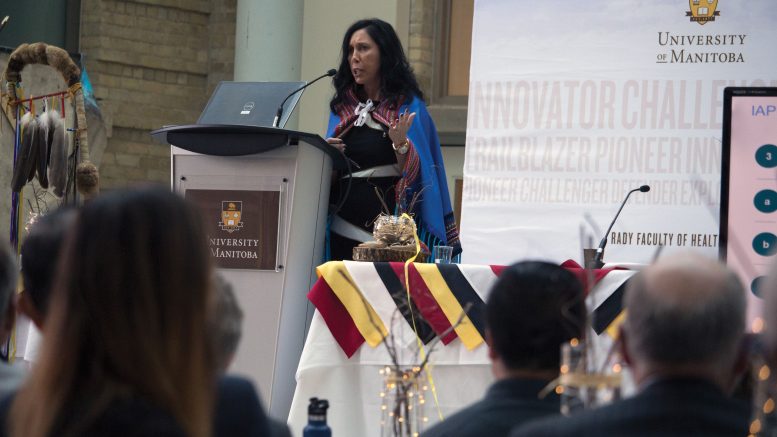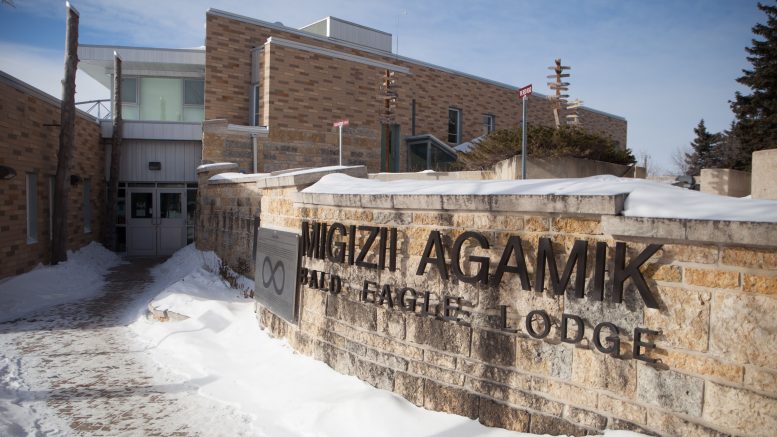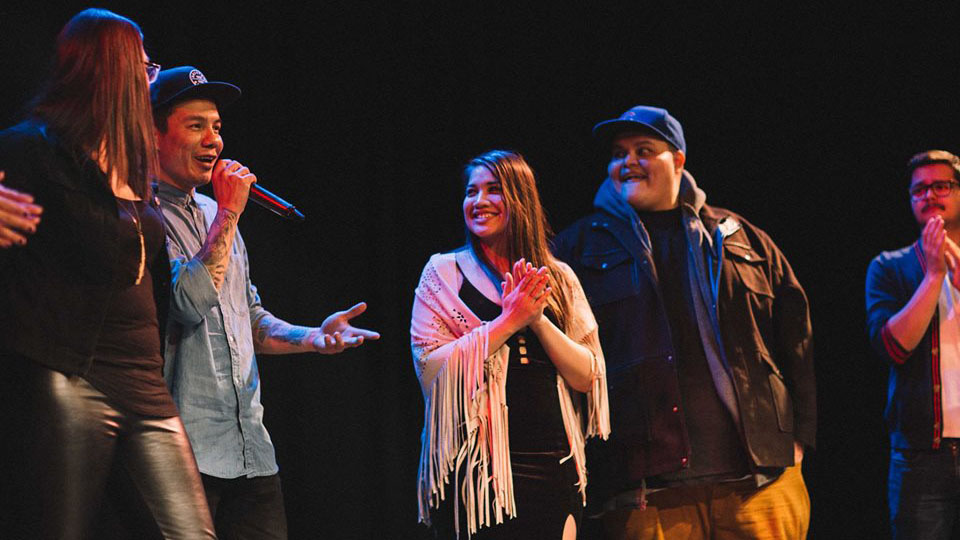The University of Manitoba’s Rady Faculty of Health Sciences celebrated the official launch of the Indigenous Institute of Health and Healing – Ongomiizwin – on June 2 at the Brodie Centre.
The university called the launch “historic” and U of M President David Barnard commented that the creation of Ongomiizwin reaffirms the university’s commitment to providing a space for Indigenous students to thrive and begin addressing colonialism.
The full-day event started off with a pipe ceremony, followed by remarks from university officials; a keynote address by Carrie Bourassa, the scientific director for the Canadian Institute of Health Research’s Institute of Aboriginal Peoples’ Health (IAPH); and a panel discussion on the subject of Ongomiizwin’s three pillars: education, research, and health services.
The afternoon program included breakout sessions that covered a range of topics including traditional knowledge, math and science outreach, admissions policies and processes, and Indigenous health care quality.
Speaking on her work at IAPH and of the significance of an institute like Ongomiizwin, Bourassa said, “we have to be really clear that the disparities in health exist on the basis of race in Canada. Racism, oppression, historical legacies and government policies that continue to perpetuate the ongoing state of Indigenous peoples’ health […] We can’t hide our heads in the sand and pretend this doesn’t exist.”
Bourassa also discussed the importance of sharing knowledge, saying “we have tons of assets in our communities. And I’ve said this a million times, if I’ve said it once, our communities have the answers. We have to start listening. It’s that simple.”
Michael Redhead Champagne, founder of Aboriginal Youth Opportunities and master of ceremonies at the launch, reminded the audience of the power of intergenerational love.
Asked to elaborate, he said “I think, to me, there is a consistent acknowledgement across Indigenous and non-Indigenous academic and community circles discussing the intergenerational trauma that is inflicted by colonialism and Indian Residential Schools. And I think the fact that our languages and our teachings and our ceremonies are still alive today is evidence that intergenerational love is stronger.”
Champagne added that the Indigenous Institute of Health and Healing itself is a form of intergenerational love.
“The fact that we’re talking about healing and not just reconciliation, healing is something for all of us,” he said. “And too frequently, reconciliation is used as a term that implies Indigenous people must do all of the educating, all of the heavy lifting and all of the work, as well as heal themselves and their land and the people surrounding them.”
Ongomiizwin – which in Anishinaabe means “clearing a path for generations to come ” – will bring together three units at the faculty of health sciences: the Manitoba First Nations Centre for Aboriginal Health Research, the Centre for Aboriginal Health Education, and the J.A. Hildes Northern Medical Unit, making Ongomiizwin the largest Indigenous education and health unit in Canada.
“This really does build on decades of work,” explained Marcia Anderson, Ongomiizwin’s executive director of Indigenous academic affairs. “We are fully committed to training a representative cohort of First Nations, Métis and Inuit physicians, nurses, pharmacists, dentists, and rehab therapists.”
This includes, as Anderson elaborated, increasing outreach to address barriers faced by potential Indigenous students; changing structural policies that disadvantage Indigenous peoples such as funding gaps in education and child welfare; and providing an environment that is safe and supportive for Indigenous students.
“We don’t want to just bring our students in, we want them to be safe when they get here, to learn, to be fully qualified Western practitioners but to have strong Indigenous identities in the context of community, connections, and mentors.”
Ongomiizwin will collaborate with First Nations, Métis, and Inuit communities in research, education and health services and the institute’s work will be done with the guidance of Indigenous knowledge keepers and elders.
The Indigenous Institute of Health and Healing will also lead in implementing the faculty’s Reconciliation Action Plan, which was developed in response to health-related calls to action made by the Truth and Reconciliation Commission.
The Action Plan includes themes such as honouring traditional knowledge and practices; providing safe learning spaces and improving Indigenous student support, mentorship, and retention; educating students and faculty on how to provide culturally appropriate health care services; and closing the gap in admissions in health-related professional education through addressing and removing the social and economic barriers faced by potential First Nations, Métis and Inuit students
Anderson said this entails taking steps towards educating health care students, both Indigenous and non-Indigenous, on providing culturally appropriate health care; building and maintaining strong relationships with diverse communities, knowledge keepers and elders; and respecting and fulfilling the right of Indigenous peoples’ access to traditional healing practices as well as Western health care practices without discrimination.





